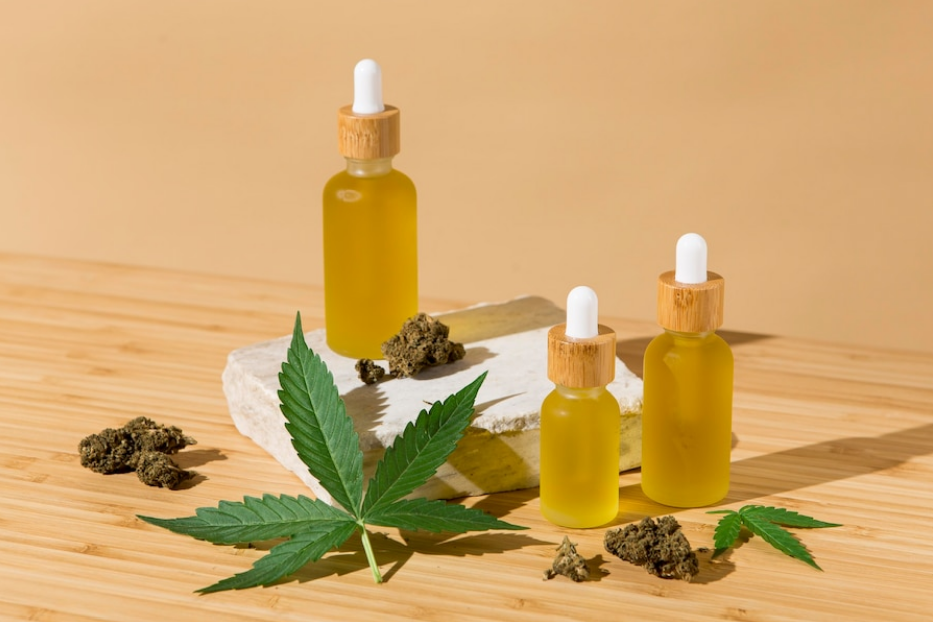Net Worths
Best CBD For Sleep & Anxiety Canada

Cannabidiol, commonly known as CBD, is a naturally occurring compound found in the Cannabis plant. It’s one of over a hundred cannabinoids discovered within this plant, but unlike some others, it does not produce any psychoactive effects. Its potential therapeutic properties have sparked significant interest in the medical and wellness communities over recent years.
A common misconception about the Cannabis plant revolves around CBD and THC, its most well-known compound. While both are cannabinoids, they are distinctly different in their effects on the human body. THC (tetrahydrocannabinol) is the primary psychoactive component of Cannabis, responsible for producing the ‘high’ that many associate with marijuana consumption. On the other hand, CBD does not have any intoxicating effects, making it an appealing option for those seeking potential relief from various ailments without the altered state of consciousness.
The human body possesses a complex system known as the Endocannabinoid System (ECS). This system plays a crucial role in maintaining various physiological processes, including mood, appetite, and sleep. CBD interacts with this system, particularly with its receptors – CB1 and CB2. While the exact mechanisms remain a subject of research, it’s believed that CBD can influence the ECS in ways that may promote relaxation, alleviate anxiety, and improve sleep quality. This intricate relationship between CBD and the ECS has led to extensive studies to better understand its potential therapeutic benefits.
The Scientific Connection: CBD, Sleep, And Anxiety
The intrigue surrounding CBD’s potential therapeutic benefits has led scientists and researchers to delve deeper into understanding its impact on various health conditions. When it comes to sleep, several studies have shed light on how CBD might play a role. Research suggests that CBD may influence the sleep-wake cycle and address factors that lead to insomnia or disturbed sleep, such as pain or anxiety. While not all results are conclusive, many individuals report improved sleep after CBD consumption, emphasizing its potential in alleviating sleep-related concerns.
Anxiety is another area where CBD has garnered attention. Studies have indicated that CBD might exhibit anxiolytic (anxiety-reducing) effects. For instance, research on both animal models and humans has shown that CBD can reduce symptoms in conditions such as generalized anxiety disorder, panic disorder, and social anxiety disorder. The potential reason for this lies in CBD’s interaction with the serotonin system, which plays a pivotal role in mood and anxiety regulation.
While the benefits of CBD sound promising, it’s essential to approach its usage with a well-informed perspective. Some potential side effects have been observed, though they are typically mild. These can include dry mouth, diarrhea, reduced appetite, and drowsiness. It’s also worth noting that CBD may interact with certain medications, so always consult with a healthcare professional before introducing CBD, especially if you are on other medications or have underlying health conditions. The growing body of research on CBD continues to offer insights, yet understanding its full spectrum of effects requires more in-depth and long-term studies.
Factors to Consider When Choosing CBD Products For Sleep And Anxiety
Navigating the myriad of CBD products available can be daunting, especially when you’re looking for relief from specific conditions like sleep disturbances and anxiety. Understanding the distinctions and nuances can significantly improve your experience and the benefits you receive.
Firstly, it’s crucial to comprehend the difference between CBD Isolate, Full Spectrum, and Broad Spectrum. CBD Isolate is the purest form of CBD, stripped of all other compounds and terpenes from the cannabis plant. This option offers a concentrated CBD experience. In contrast, Full Spectrum CBD contains all the natural compounds present in the cannabis plant, including THC, albeit usually in minimal amounts. This composition is believed to foster the ‘entourage effect’, where the combined compounds work synergistically, potentially amplifying therapeutic benefits. Broad Spectrum is a middle ground, containing multiple cannabis compounds but devoid of THC, making it a choice for those who want the synergistic benefits without the THC.
The method of consumption plays a significant role in the onset, intensity, and duration of effects. Oils and tinctures, taken sublingually, tend to be fast-acting and offer precise dosing. Edibles, like best gummies for sleep Canada or chocolates, provide a slower release but longer-lasting effect, as they’re metabolized in the digestive system. Vapes allow for almost immediate effects since CBD is absorbed through the lungs, while capsules offer convenience and consistency in dosing. It’s essential to choose a method that aligns with your comfort and desired outcome.
Determining the right dosage is often a process of trial and error. Factors like body weight, metabolism, and the nature of your symptoms can influence the amount you need. It’s typically advised to start with a low dose and gradually increase until you find what works best for you.
Lastly, given the booming CBD market, third-party testing and quality assurance are paramount. Always opt for products that provide lab results, ensuring purity, consistency, and the absence of harmful contaminants. This ensures you’re truly getting the best for your health and well-being.
How to Use CBD For Best Results
Embarking on the CBD journey to address sleep and anxiety requires a thoughtful approach to ensure maximum benefit and safety. One of the foundational recommendations is to start with a low dose. The sensitivity to CBD varies among individuals. By commencing your journey with a minimal amount, you give your body the chance to acclimate to the compound and reduce the potential for adverse reactions. Over time, as you become more familiar with its effects on your system, you can consider incrementally increasing the dosage. This approach ensures that you find the most effective dose tailored to your needs without overdoing it.
An integral aspect of fine-tuning your CBD experience lies in tracking your symptoms. Keeping a journal or a log can be invaluable. By documenting your daily dosage alongside any changes in sleep quality or anxiety levels, you’ll gain insights into the ideal amount for your unique requirements. This personal record can also assist in discussions with healthcare professionals, providing a clear picture of your journey and any adjustments needed.
While CBD offers promising potential benefits for sleep and anxiety, it’s essential to view it as one piece of a holistic wellness puzzle. Incorporating complementary therapies or habits can amplify the positive effects. Consider practices like meditation, regular exercise, or cognitive-behavioral therapy, which have been shown to help alleviate anxiety and improve sleep. Herbal remedies, such as chamomile or lavender, might also complement the relaxing effects of CBD. By creating a multifaceted approach to your well-being, you pave the way for a more comprehensive and enduring solution to sleep and anxiety concerns.





















































